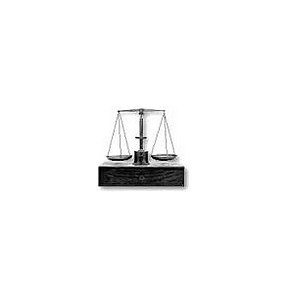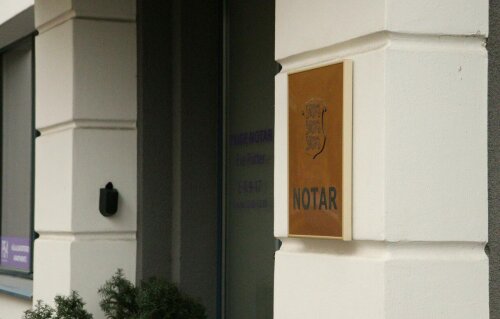Best Family Lawyers in Estonia
Share your needs with us, get contacted by law firms.
Free. Takes 2 min.
Free Guide to Hiring a Family Lawyer
Or refine your search by selecting a city:
List of the best lawyers in Estonia
About Family Law in Estonia
Family law in Estonia is designed to address various legal issues that arise within family relationships. It encompasses areas such as marriage, divorce, child custody, adoption, and guardianship, ensuring that the personal and property rights of individuals are acknowledged and protected. The Estonian legal system strives to uphold the individual's interest while prioritizing the best interests of children in family matters. Legal processes are generally regulated under various acts, including the Family Law Act, which forms the foundation of family law in Estonia.
Why You May Need a Lawyer
There are several scenarios where one might require legal assistance with family law issues in Estonia:
- Divorce Proceedings: Navigating the complexities of divorce, asset division, or alimony can be challenging.
- Child Custody and Support: Determining custody arrangements and securing child support requires careful legal consideration.
- Adoption: Understanding the legal requirements and processes for adopting a child in Estonia.
- Domestic Violence: Ensuring protection for victims and legally addressing domestic abuse situations.
- Marriage Contracts: Drafting or evaluating prenuptial or postnuptial agreements.
- Guardianship: Establishing or disputing guardianship requires procedural legal know-how.
Local Laws Overview
Family law in Estonia is regulated mainly by the Family Law Act, which lays down comprehensive guidelines for handling family-related issues. Key aspects include:
- Marriage and Cohabitation: Estonian law recognizes both marriages and registered partnerships, dictating property and other personal rights for those in registered relationships.
- Divorce: Divorces can be consensual or contested, each following different legal procedures.
- Parental Responsibility: Estonia emphasizes the importance of co-parenting and joint responsibility, heavily considering children's rights and needs.
- Maintenance Obligations: Legal obligation of both parents to provide for their children's welfare needs.
- Adoption and Guardianship: Thorough legal frameworks exist to safeguard adopted and guardianed children's well-being.
Frequently Asked Questions
What is the process for getting a divorce in Estonia?
To obtain a divorce in Estonia, you must submit a petition to the court. The divorce can be mutual or contested, and the proceedings will address issues like asset division and child custody.
How is child custody determined?
Child custody is decided based on the child's best interests, often favoring joint parental responsibility unless circumstances necessitate otherwise.
Can I draft my own prenuptial agreement?
While it's possible to draft a prenuptial agreement, it's advisable to seek legal assistance to ensure it's legally enforceable and covers all necessary clauses.
How does Estonian law handle alimony?
Alimony is usually awarded based on the needs and financial capabilities of the spouses, focusing on maintaining a standard of living similar to that during the marriage.
What are the legal requirements for adoption?
Estonian law requires adopters to meet certain age and capability criteria and undergo a thorough legal process to ensure the child’s welfare post-adoption.
What rights do unmarried cohabitants have?
Unmarried cohabitants have limited rights compared to spouses. Legal arrangements such as cohabitation contracts can help address property rights and obligations.
How is domestic violence addressed legally?
Victims of domestic violence can seek restraining orders and other protective measures. The police and social services offer support to affected individuals.
Can foreign marriages be recognized in Estonia?
Yes, marriages conducted abroad can be recognized in Estonia, provided they comply with the local legal requirements and are properly registered.
What happens to shared property after a divorce?
Property acquired during the marriage is typically divided equally unless pre-agreed otherwise in a prenuptial agreement or court decision.
How can I challenge a guardianship decision?
Challenging a guardianship decision involves filing a petition with the court, providing evidence as to why the existing guardianship is not in the best interest of the child or ward.
Additional Resources
For additional support, consider reaching out to these resources:
- Estonian Bar Association: Offers listings of certified family law attorneys.
- Social Insurance Board: Provides information and support related to family welfare services.
- Estonian Consumer Protection and Technical Regulatory Authority: Can assist with mediation in certain family-related legal matters.
- Ministry of Social Affairs: Oversees family and children’s services, offering various informational materials.
Next Steps
If you require legal assistance in family matters, consider the following steps:
- Identify Your Legal Needs: Determine the specific area of family law you need help with, whether it be divorce, custody, adoption, etc.
- Consult with a Lawyer: Schedule a consultation with a specialized family lawyer to discuss your situation and get tailored advice.
- Gather Necessary Documentation: Collect and organize relevant legal documents, personal records, and any other materials that will support your case.
- Follow Legal Proceedings: Adhere to the legal guidance provided by your attorney and maintain communication throughout the process.
- Explore Mediation: If applicable, consider mediation as an alternative to court proceedings for amicable dispute resolution.
By following these steps, you can ensure that your family law issues are addressed effectively and with the necessary legal guidance.
Lawzana helps you find the best lawyers and law firms in Estonia through a curated and pre-screened list of qualified legal professionals. Our platform offers rankings and detailed profiles of attorneys and law firms, allowing you to compare based on practice areas, including Family, experience, and client feedback.
Each profile includes a description of the firm's areas of practice, client reviews, team members and partners, year of establishment, spoken languages, office locations, contact information, social media presence, and any published articles or resources. Most firms on our platform speak English and are experienced in both local and international legal matters.
Get a quote from top-rated law firms in Estonia — quickly, securely, and without unnecessary hassle.
Disclaimer:
The information provided on this page is for general informational purposes only and does not constitute legal advice. While we strive to ensure the accuracy and relevance of the content, legal information may change over time, and interpretations of the law can vary. You should always consult with a qualified legal professional for advice specific to your situation.
We disclaim all liability for actions taken or not taken based on the content of this page. If you believe any information is incorrect or outdated, please contact us, and we will review and update it where appropriate.
Browse family law firms by service in Estonia
Estonia Attorneys in related practice areas.
Browse family law firms by city in Estonia
Refine your search by selecting a city.














